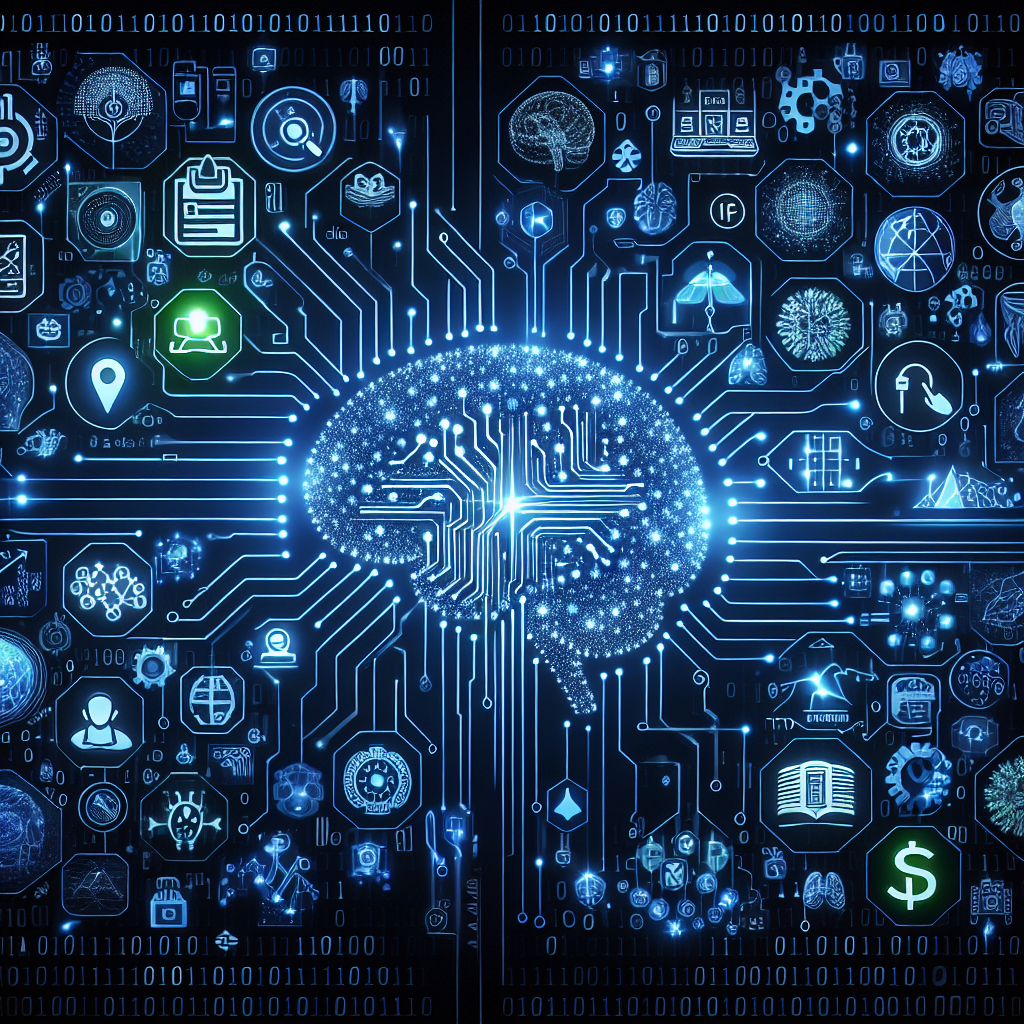Artificial General Intelligence (AGI) has been a long sought-after goal in the field of artificial intelligence. Unlike narrow AI systems that are designed for specific tasks, AGI aims to create machines that possess human-like intelligence and can perform a wide range of cognitive tasks across different domains. AGI has the potential to revolutionize industries, improve efficiency, and even reshape society as we know it.
In this article, we will explore the concept of AGI, the current state of research, its potential applications, and the challenges and ethical considerations associated with its development.
What is AGI?
AGI refers to machines that possess the ability to understand and learn any intellectual task that a human being can. This includes tasks such as reasoning, problem-solving, planning, natural language processing, and even creativity. AGI is often compared to human intelligence in terms of its flexibility and adaptability across different domains.
Unlike narrow AI systems that are designed for specific tasks, AGI aims to create machines that can generalize their knowledge and skills to new and unfamiliar situations. This level of intelligence is considered to be the next frontier in artificial intelligence, as it has the potential to surpass human capabilities in certain areas.
Current State of Research
While AGI remains a hypothetical concept at this point, researchers and developers around the world are working towards creating machines that can exhibit human-like intelligence. Significant progress has been made in fields such as machine learning, deep learning, natural language processing, and cognitive computing, which are all crucial components of AGI.
Companies like OpenAI, DeepMind, and IBM are at the forefront of AGI research, developing advanced algorithms and models that can perform complex cognitive tasks. These systems are capable of learning from large datasets, making decisions based on uncertain information, and even generating creative outputs.
However, despite these advancements, AGI still remains a distant goal. The challenges of creating machines that can truly understand and reason like humans are immense, and researchers are constantly pushing the boundaries of what is possible with current technology.
Potential Applications of AGI
The potential applications of AGI are vast and diverse, spanning across industries such as healthcare, finance, transportation, and entertainment. Here are some of the areas where AGI could have a significant impact:
– Healthcare: AGI could revolutionize the healthcare industry by assisting doctors in diagnosing diseases, predicting patient outcomes, and developing personalized treatment plans. It could also help in drug discovery and development, leading to more effective and targeted therapies.
– Finance: AGI could be used to analyze financial markets, predict trends, and make investment decisions. It could also help in detecting fraudulent activities, managing risks, and optimizing trading strategies.
– Transportation: AGI could improve the safety and efficiency of transportation systems by optimizing traffic flow, predicting accidents, and enabling autonomous vehicles to navigate complex environments.
– Entertainment: AGI could create immersive and interactive experiences in gaming, virtual reality, and augmented reality. It could also be used to generate personalized content, such as movies, music, and books.
Challenges and Ethical Considerations
While AGI has the potential to bring about significant benefits, it also raises ethical concerns and challenges that must be addressed. Some of the key issues include:
– Bias and Discrimination: AGI systems can inherit biases from the data they are trained on, leading to discriminatory outcomes. It is crucial to ensure that these systems are fair, transparent, and accountable in their decision-making processes.
– Privacy and Security: AGI systems have the potential to collect and analyze vast amounts of personal data, raising concerns about privacy and security. It is important to establish robust regulations and safeguards to protect individuals’ data and prevent misuse.
– Unemployment and Job Displacement: The widespread adoption of AGI could lead to job displacement in certain industries, as machines take over tasks that were previously performed by humans. It is essential to retrain and reskill workers to adapt to the changing labor market.
– Control and Autonomy: AGI systems have the potential to act autonomously and make decisions without human intervention. It is important to establish mechanisms for human oversight and control to prevent unintended consequences and ensure ethical behavior.
FAQs
Q: When will AGI be achieved?
A: It is difficult to predict an exact timeline for achieving AGI, as it depends on various factors such as technological advancements, funding, and research progress. Some experts believe that AGI could be achieved within the next few decades, while others are more cautious in their estimates.
Q: How is AGI different from narrow AI?
A: AGI is designed to possess human-like intelligence and perform a wide range of cognitive tasks across different domains, while narrow AI systems are designed for specific tasks or applications. AGI aims to generalize its knowledge and skills to new and unfamiliar situations, whereas narrow AI is limited to the tasks it was trained on.
Q: What are some of the ethical concerns associated with AGI?
A: Some of the ethical concerns associated with AGI include bias and discrimination, privacy and security, unemployment and job displacement, and control and autonomy. It is important to address these issues proactively to ensure that AGI is developed and deployed responsibly.
Q: How can we ensure the responsible development of AGI?
A: To ensure the responsible development of AGI, it is important to establish guidelines, regulations, and ethical frameworks that govern its design, deployment, and use. Collaboration between researchers, policymakers, industry leaders, and the public is essential to address the ethical, social, and legal implications of AGI.
In conclusion, AGI has the potential to be a game-changer in the world of artificial intelligence, revolutionizing industries, improving efficiency, and reshaping society. While significant progress has been made in research and development, challenges and ethical considerations must be addressed to ensure that AGI is developed and deployed responsibly. By working together towards a common goal, we can unlock the full potential of AGI and create a future where machines and humans can coexist harmoniously.

